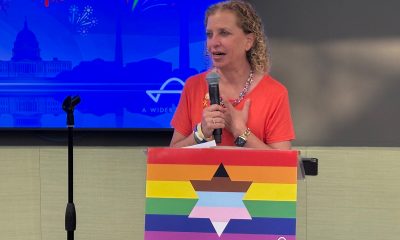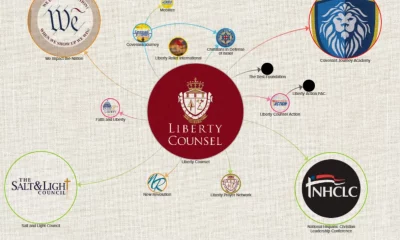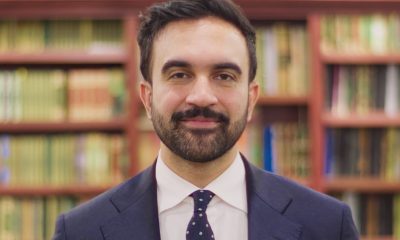Middle East
Gay Palestinian man murdered, decapitated in West Bank
Ahmed Hacham Hamdi Abu Markhieh had sought refuge in Israel
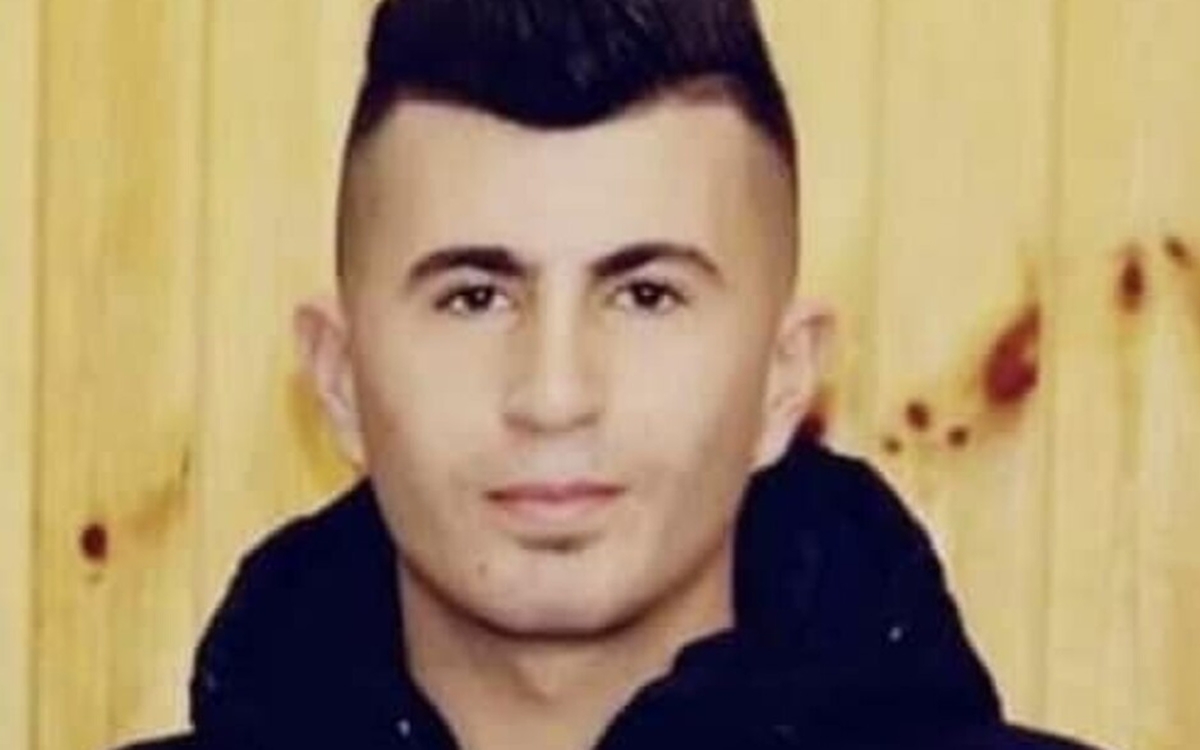
WDG, the Washington Blade’s media partner in Israel, wrote this article.
The decapitated body of Ahmed Hacham Hamdi Abu Markhieh was discovered in Hebron on Oct. 5 with his head cut off and lying beside it.
Marakhia, a 25-year-old Palestinian, has been living in Israel for the past two years. He fled after he was persecuted and received death threats because of his sexual orientation.
Rumors about Markhieh’s death started to circulate after a video on social media showed his body lying on the side of the road. Markhieh’s friends in Israel, who feared for his safety after he did not arrive at work in the morning, immediately linked his disappearance to the video and assumed that the body on the video was Marakhia’s body.
Markhieh’s relatives, who live in the Palestinian Authority, issued a statement that acknowledged their mourning, but did not comment on the circumstances of his death.
“This is a very ugly crime,” one of his relatives told Al Karama, a Palestinian radio station, while asking for the family’s privacy to be respected after “this heinous and unprecedented crime that shocked the homeland.”
U.S. Ambassador to Israel Thomas R. Nides responded to the murder and said he was “shocked and horrified by the murder and beheading of Ahmed Abu Murkia in Hebron.”
“Violence against LGBTQI+ people is unacceptable,” said Nides.
It is not clear how Marakhia traveled from Israel to the Palestinian territories.
His acquaintances in Israel believe he was kidnapped in Israel and brought back to Hebron, where he was murdered. According to them, Marakhia had no reason to return to Hebron by himself, especially because the danger posed to his life. Even his closest friends who helped him in Israel claim that this is the reason for his murder.
“He said that people in his village wanted to kill him,” said his acquaintances in Israel. “He was afraid of his brothers, his uncles, his cousins.”
The Palestinian police who are investigating the case have arrested a suspect in the murder, but they have not classified it as a hate crime. They also have not identified a potential motive for the murder.
“This is a new type of crime that we are not used to in Palestinian society,” said Loay Irzikat, a spokesman for the Palestinian police. “This is a dangerous development and it must be examined and analyzed broadly and deeply in order to understand why the incident developed in this way.”
Issa Amro, a Palestinian human rights activist, has claimed Marakhia’s death has nothing to do with his sexual orientation.
“To Israeli media and Israeli leftists, Ahmed Abu Markhieh was not killed in Hebron because he was gay”, Amro tweeted, “No one in Hebron knew that he was gay, and the killer was his close friend, who lost his brain because of drugs, so please be accurate about it.”
Markhieh planned to move to Canada
While in Israel, Ahmed was active in the community and participated in an Arab LGBTQ group in the south. The many friends who knew him from volunteering describing a sensitive, brave and optimistic man who did everything he could to start a new life in Canada.
In order to promote his immigration application, Ahmed was assisted by Al Bait Al Mokhtalef (The Different House), a group that assists Palestinian LGBTQ and women in submitting asylum applications abroad.
“LGBTQ and Palestinian women who fled Palestinian Authority territories in danger for their lives due to their sexual orientation or gender identity do not receive any status in Israel and are prevented from submitting an asylum application as asylum seekers from other countries do,” explained Different House CEO Rita Petrenko. “After a long legal battle of human rights organizations, the state specifically opened the process of issuing ‘residence permits for welfare needs’ to LGBTQ people and Palestinian women.
Since this is a different process from the asylum application process, it causes them to lose some of the rights granted to asylum seekers, and deprives them of services intended for other asylum seekers. As of July 2022, Palestinians with residence permits for welfare purposes can receive work permit, which should be a great relief. But this still does not give them stability in life, because their status is not permanent. For most of them, the only solution is to ask the United Nations Commission for assistance in resettlement in a third country.”
The Different House helps those LGBTQ people mainly in dealing with the bureaucracy in the civil administration and getting or renewing a residence permit. The Different House also offers access to shelters, clinics and hospitals.
“We are cooperating with certain Knesset members for the purpose of changing policy. But we do not receive aid from the state for activities on behalf of Palestinian LGBTQs. There is assistance from the Ministry of Social Equality and the Beer Sheva municipality for social activities of Arab LGBTs in the south, in which Palestinians can of course participate,” said Petrenko. “We also collaborating with human rights organizations such as Doctors for Human Rights, the HIAS association, legal clinics, etc.”
Markhieh murdered less than a month before Israel elections
The difficult questions raised by Markhieh’s murder do not remain within the borders of the Palestinian Authority. They have been asked throughout Israel as well.
Media coverage of Markhieh’s murder undermine the sense of security among members of the LGBTQ community in Israel; and the case raises many questions among the members of the community concerning their personal safety. Community members have also demanded that the Israeli government will take care of the safety of those staying within its borders.
Less than a month before the elections in Israel, Markhieh’s shocking murder is even used by the politicians as a tool to confront their political opponents, as far as the LGBTQ issues are concerned.
Right-wing politicians have taken advantage of the opportunity to point out the cruelty of the political partners of the left-wing parties, which include the Arab parties Ra’am and the Joint List, and to emphasize that the aspiration for the establishment of a Palestinian state is the establishment of an ISIS state that executes LGBTQ people. In response, the left-wing activists emphasize that the right-wing parties teamed up with Jewish anti-LGBTQ parties, which are based on an anti-LGBTQ agenda, just to return to power.
There are currently around 100 LGBTQ Palestinians in Israel who received a residence permit to live in the country after fleeing the Palestinian territories due to their sexual orientation. But apart from the possibility of working, they do not receive refugee status that regulates their civil rights, and most of them are in some stage of immigrating to a third country, far from those to seek to do them harm.
The Different House believes that in order to save those Palestinians from Markhieh’s cruel fate, the state must help submit those requests and speed up their processing because these are life and death cases.
“First of all, what the state needs to do is to allow LGBTQ people and Palestinian women to submit asylum applications in the same way as LGBTQ people from other countries, and accordingly to carry out a process of permanent status or resettlement in a third country,” Petrenko says, “Most of the Palestinian LGBTQ people staying in Israel are afraid to stay in Israel, because they are afraid that they could be found here as well. The state can help by granting them asylum seeker status during the waiting period, similar to all other asylum seekers.
For those who are unable to leave for unusual reasons, the state should enable a process similar to the one used in the process of recognizing a refugee and at the end of which permanent status is granted.”
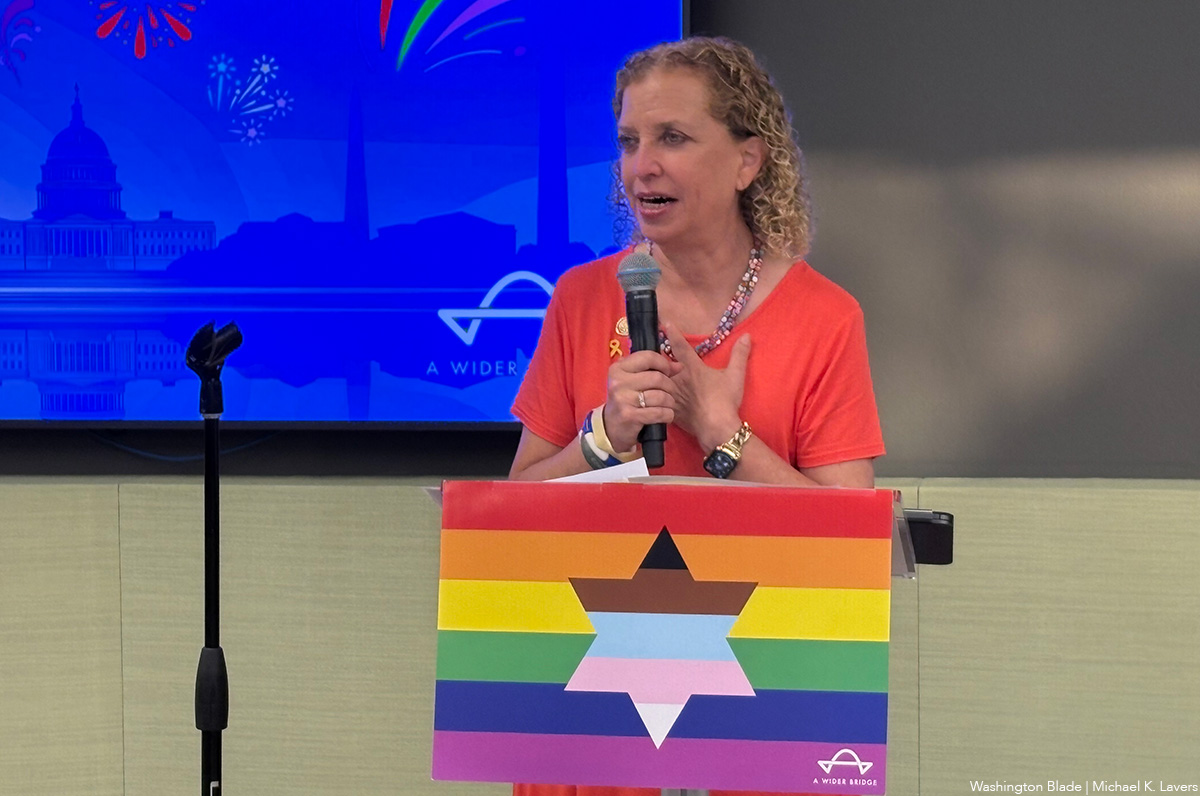
A Wider Bridge on Friday announced it will shut down at the end of the month.
The group that “mobilizes the LGBTQ community to fight antisemitism and support Israel and its LGBTQ community” in a letter to supporters said financial challenges prompted the decision.
“After 15 years of building bridges between LGBTQ communities in North America and Israel, A Wider Bridge has made the difficult decision to wind down operations as of Dec. 31, 2025,” it reads.
“This decision comes after challenging financial realities despite our best efforts to secure sustainable funding. We deeply appreciate our supporters and partners who made this work possible.”
Arthur Slepian founded A Wider Bridge in 2010.
The organization in 2016 organized a reception at the National LGBTQ Task Force’s Creating Change Conference in Chicago that was to have featured to Israeli activists. More than 200 people who protested against A Wider Bridge forced the event’s cancellation.
A Wider Bridge in 2024 urged the Capital Pride Alliance and other Pride organizers to ensure Jewish people can safely participate in their events in response to an increase in antisemitic attacks after Hamas militants attacked Israel on Oct. 7, 2023.
The Jewish Telegraphic Agency reported authorities in Vermont late last year charged Ethan Felson, who was A Wider Bridge’s then-executive director, with lewd and lascivious conduct after alleged sexual misconduct against a museum employee. Rabbi Denise Eger succeeded Felson as A Wider Bridge’s interim executive director.
A Wider Bridge in June honored U.S. Rep. Debbie Wasserman Schultz (D-Fla.) at its Pride event that took place at the Capital Jewish Museum in D.C. The event took place 15 days after a gunman killed two Israeli Embassy employees — Yaron Lischinsky and Sarah Milgrim — as they were leaving an event at the museum.
“Though we are winding down, this is not a time to back down. We recognize the deep importance of our mission and work amid attacks on Jewish people and LGBTQ people – and LGBTQ Jews at the intersection,” said A Wider Bridge in its letter. “Our board members remain committed to showing up in their individual capacities to represent queer Jews across diverse spaces — and we know our partners and supporters will continue to do the same.”
Editor’s note: Washington Blade International News Editor Michael K. Lavers traveled to Israel and Palestine with A Wider Bridge in 2016.
Egypt
Iran, Egypt object to playing in Seattle World Cup ‘Pride Match’
Game to take place on June 26

Iran and Egypt have objected to playing in a “Pride Match” that will take place in Seattle during the 2026 World Cup.
The Egyptian Football Association on Tuesday said it told FIFA Secretary General Mattias Grafström in a letter that “it categorically rejects holding any activities related to supporting (homosexuality) during the match between the Egyptian national team and Iran, scheduled to be held in Seattle, USA, on June 26, 2026, in the third round of the group stage of the 2026 World Cup.” Football Federation Islamic Republic of Iran President Mehdi Taj told ISNA, a semi-official Iranian news agency that both his country and Egypt “protested this issue.”
The 2026 World Cup will take place in the U.S., Canada, and Mexico. The draw took place at the Kennedy Center on Dec. 5.
Iran is among the handful of countries in which consensual same-sex sexual relations remain punishable by death.
The State Department’s 2023 human rights report notes that while Egyptian law “did not explicitly criminalize consensual same-sex sexual activity, authorities regularly arrested and prosecuted LGBTQI+ persons on charges including ‘debauchery,’ prostitution, and ‘violating family values.’” Egyptian authorities “also reportedly prosecuted LGBTQI+ individuals for ‘misuse of social media.’”
“This resulted in de facto criminalization of same-sex conduct and identity,” notes the report.
The 2024 human rights report the State Department released earlier this year did not include LGBTQ-specific references.
Soccer has ‘unique power to unite people across borders, cultures, and beliefs’
The June 26 match between Iran and Egypt coincides with Seattle Pride. The Washington Post reported the Seattle FIFA World Cup 2026 Local Organizing Committee decided to hold the “Pride Match” before last week’s draw.
“As the Local Organizing Committee, SeattleFWC26’s role is to prepare our city to host the matches and manage the city experience outside of Seattle Stadium,” said SeattleFWC26 Vice President of Communications Hana Tadesse in a statement the committee sent to the Washington Blade on Wednesday. “SeattleFWC26 is moving forward as planned with our community programming outside the stadium during Pride weekend and throughout the tournament, partnering with LGBTQ+ leaders, artists, and business owners to elevate existing Pride celebrations across Washington.”
“Football has a unique power to unite people across borders, cultures, and beliefs,” added Tadeese. “The Pacific Northwest is home to one of the nation’s largest Iranian-American communities, a thriving Egyptian diaspora, and rich communities representing all nations we’re hosting in Seattle. We’re committed to ensuring all residents and visitors experience the warmth, respect, and dignity that defines our region.”
The 2034 World Cup will take place in Saudi Arabia.
Consensual same-sex sexual relations remain punishable by death in the country. The 2022 World Cup took place in neighboring Qatar, despite concerns over the country’s anti-LGBTQ rights record.
District of Columbia
Bet Mishpachah welcomes release of last hostages from Gaza
President Donald Trump helped broker ceasefire between Israel, Hamas

Bet Mishpachah on Monday welcomed the release of the remaining hostages in the Gaza Strip as part of a ceasefire agreement that President Donald Trump helped broker.
“As we enter into the holy days of Shmini Atzeret and Simhat Torah, we are flooded with a mix of emotions,” said Jake Singer-Beilin, the Washington LGBTQ Jewish congregation’s chief rabbi, in a message to members. “The great joy of these holy days was smashed two years ago on Oct. 7, 2023. Hundreds were murdered on that day, and many — alive and dead — were taken hostage.”
“Today, as the last living hostages return back to Israel, we find great relief as well as pain for what has happened to them up to this point,” he added. “This year, we will celebrate with exuberance knowing that a ceasefire is holding, and that the captives have been redeemed. We will also hold within us the grief that we feel for Israelis and Palestinians who died on that day and since. With these swirling emotions, we offer thanks to the peacemakers and to the One who makes peace on high. We pray that peace will reign in the region, and that those who have endured so much will find healing and hope.”
The Israeli government says Hamas militants killed roughly 1,200 people on Oct. 7, including upwards of 360 partygoers at the Nova Music Festival near Re’im, a kibbutz that is a couple miles from the Gaza Strip, when it launched its surprise attack on the country. The militants also kidnapped more than 200 people.
(Washington Blade video by Michael K. Lavers)
The Hamas-controlled Gaza Health Ministry says Israeli forces have killed more than 67,000 people in the enclave since Oct. 7. Karim Khan, the International Criminal Court’s chief prosecutor, has said Israeli Prime Minister Benjamin Netanyahu and former Hamas leader Yahya Sinwar, who the Israel Defense Forces killed last October, are among those who have committed war crimes and crimes against humanity in Gaza and Israel.
The Israeli government has strongly denied it has committed genocide in Gaza.

The ceasefire between Israel and Hamas took effect on Oct. 10.
The last 20 living hostages returned to Israel on Monday, while the Jewish State released 1,968 Palestinians who had been in Israeli prisons. Hamas on Monday released the bodies of four hostages who died while in captivity.
Trump, Egyptian President Abdel Fattah el-Sisi, Turkish President Recep Tayyip Erdogan, and Qatari Emir Tamim bin Hamad Al Thani on Monday signed the ceasefire agreement in Sharm el-Sheikh, Egypt. Trump earlier in the day spoke at the Israeli Knesset in Jerusalem.
“This is the historic dawn of a new Middle East,” said Trump in his Knesset speech.
The ceasefire and its implementation remains tenuous, but one Israeli LGBTQ activist with whom the Washington Blade spoke on Monday celebrated the hostages’ return.
“Emotions are high and everyone is with their loved ones or celebrating in the streets,” they said. “It’s definitely a historic and joyful day for the Israeli people.”
Ga’ava, an LGBTQ group that is affiliated with the Toronto-based Center for Israel and Jewish Affairs, on its Instagram page proclaimed the “hostages are free, war is over.” A Wider Bridge — a group that “advocates for justice, counters LGBTQphobia, and fights antisemitism and other forms of hatred” — described Monday as “a joyful day.”
-

 National4 days ago
National4 days agoWhat to watch for in 2026: midterms, Supreme Court, and more
-

 District of Columbia5 days ago
District of Columbia5 days agoTwo pioneering gay journalists to speak at Thursday event
-

 Colombia4 days ago
Colombia4 days agoBlade travels to Colombia after U.S. forces seize Maduro in Venezuela
-

 a&e features5 days ago
a&e features5 days agoQueer highlights of the 2026 Critics Choice Awards: Aunt Gladys, that ‘Heated Rivalry’ shoutout and more

